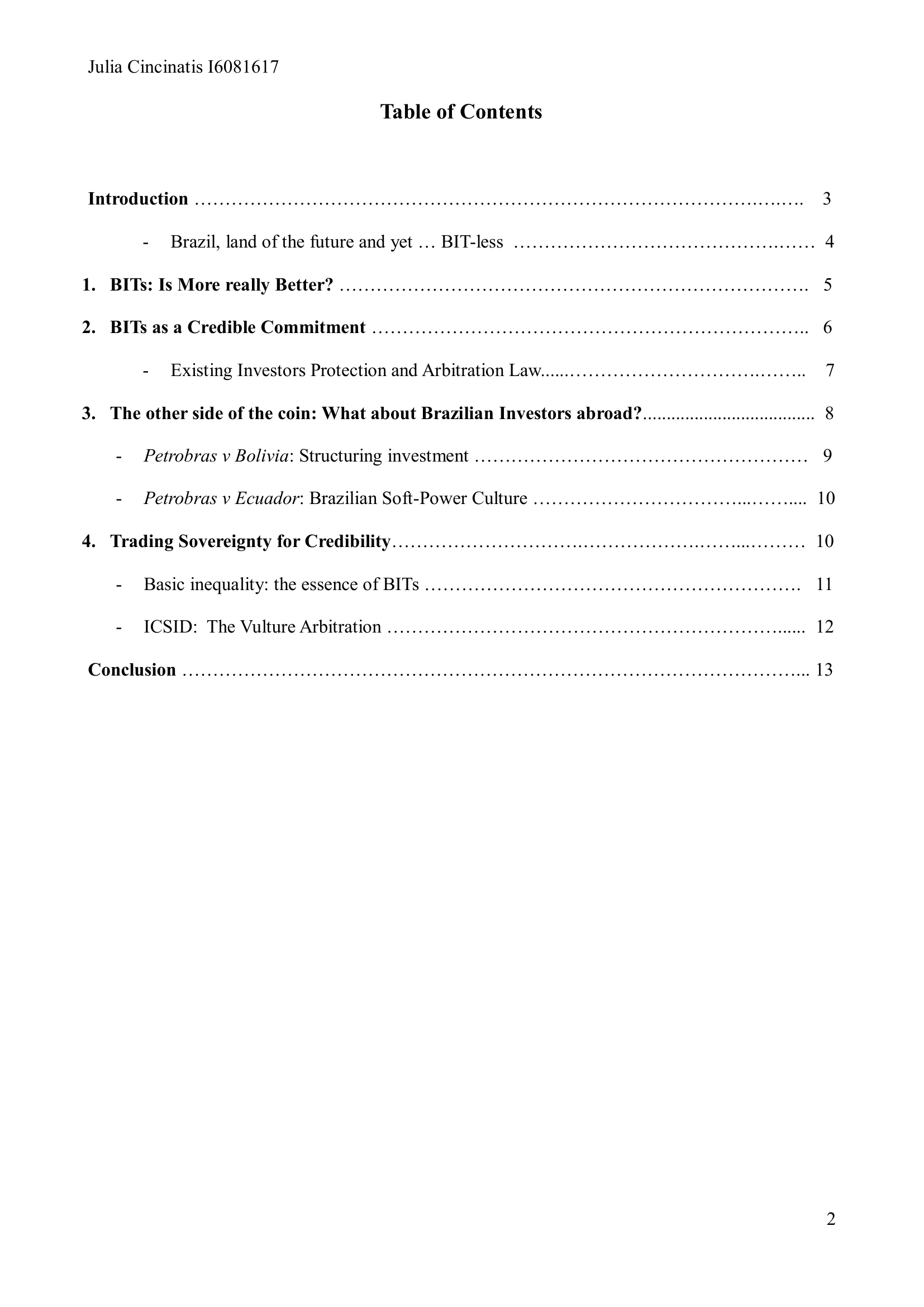Investor-State Arbitration in Brazil: Should Brazil enter BITs?
Publié le 01/08/2014

Extrait du document
«
Julia Cincinatis I6081617
2
Table of Contents
Introduction … …………………………………………………………………………… .…. ….
3
- Brazil, land of the future and yet … BIT -less …………………………………… .… … 4
1.
BITs: Is More really Better? ………………………………………………………………….
5
2.
BITs as a Credible Commitment …………………………… …………………… …… …… ..
6
- Existing Investors Protection and Arbitration Law......………………………….……..
7
3.
The other side of the coin: What about Brazilian Investors abroad? ..................................... 8
- Petrobras v Bolivia : Structuring investment ………………… … … ……………………… 9
- Petrobras v Ecuador : Brazilian Soft -Power Culture … … ……………………… ...…… .... 10
4.
Trading Sovereignty for Credibility ………………… …… ….……………….… …... ……… 10
- Basic inequality: t he essence of BITs …………………………………………………….
11
- ICSID: The Vulture Arbitration ………………………………………………………......
12
Conclusion ……………………………………………………………………… ………………...
13.
»
↓↓↓ APERÇU DU DOCUMENT ↓↓↓
Liens utiles
- jeanneney: a life devoted to the state
- Should we have one global language?
- L'Empire State Building 1930-1931 Shreve, Lamb, Harmon
- Empire State Building - architecture.
- Fiche de voc sur la politique POLITICS A head of state A citizen Citizenship Un

































